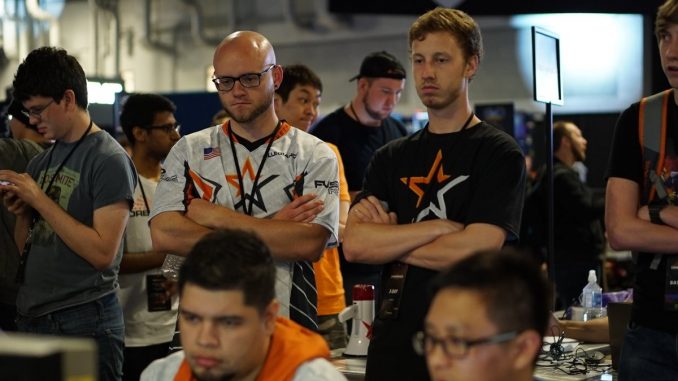
Another organization falls victim to the current cash-investment-heavy world of competitive gaming.
by Kim Newsome, EIC
This week major organization Allegiance announced their departure from the esports scene citing funding issues. The last team to play under the Allegiance name will be their professional Call of Duty: Infinite Warfare team, competing at the Call of Duty Championships on August 9th.
In a post on their website, Allegiance GM Connor Hall said he wanted to provide transparency regarding the org’s dissolution:
Allegiance is no longer able to compete with the organizations at the highest level with our current funding and found that now is the best time to depart from this gaming landscape. It’s certainly an exciting time for esports and we are thrilled to see the future regardless of our involvement!
-Connor Hall, Allegiance Owner and General Manager
Hall also took to Twitter after the announcement for additional thoughts:
This may come as a surprise, but the professional landscape of esports is just too cash heavy. It no longer makes sense to invest.
— ALG Connor (@CHInStiiNcT) August 3, 2017
According to the general manager, the organization is currently working to find new organizations for their current competitive rosters. At the time of the announcement Allegiance was supporting a SMITE team and Super Smash Bros Melee player Edgard “n0ne” Sheleby in addition to the aforementioned Call of Duty team. On Thursday and Friday, many current and former Allegiance players expressed their sadness at the org’s departure and also had praise for the ownership:
Thank you to @CHInStiiNcT and @TeamAllegiance for treating us like family over the last half of this game. Sad to see them leave.
— ALG Tristan ? (@Spoofss) August 3, 2017
Had a great time with ALG and @CHInStiiNcT was incredible. Always involved, and one of the most passionate owners I’ve worked with. GL to u! https://t.co/XguQQaoSjv
— Neil Mah (@Neirumah) August 3, 2017
Nothing but love for the people who ran this org and made it possible for many player ⭐️?? https://t.co/57It170C7A
— Matt (@SaugaRoyalty) August 3, 2017
Thus this chapter ends
It was a fun ride
Orange was my favorite color too
It was an honor to rock the star#ALGfam https://t.co/muOAKfaunP— Edgar Sheleby (@n0ned) August 3, 2017
Allegiance began in 2015 as Team Allegiance and made news when its Halo 5 team made it all the way to second place at the 2016 Halo World Championships, just months after the organization’s creation. The organization says they have had 67 players on the roster over the past two years.
The inability for smaller, newer organizations without multi-holder backing to thrive for long in esports has been a common problem, especially in the world of console esports. In the Call of Duty scene alone there have been 18 teams that have placed in the Top 8 at Call of Duty Championships from 2014-2016. Of those 18 teams, only ten of the organizations are still on the scene. Many of the teams have disbanded or are not sponsoring pro-level teams, while others left competitive gaming to build up a more lucrative and less expensive roster of streaming or YouTube gaming talent.
Why are some organizations having financial trouble? Some of the more common issues may boil down to travel, player and staff salaries, and acquisitions. More tournaments mean higher travel costs, a big change for orgs that were used to sponsoring teams that primarily played online. Signing bonuses have also become more common, and teams are expected to pay top dollar for top players if they want to compete in a major esport.
Even if an organization doesn’t take cut of the players’ cash winnings (which may be nonexistent if the team places out of the Top 8 spots, event at an Open event with over 200 teams), relying on sponsorships to generate money is a tough road for most small organizations. Endemic and non-endemic partnerships and sponsorship can be tough for smaller organizations to secure, so there are some teams competing in major events with just one or two sponsors backing their organization. Without help from outside sources with deep pockets and a lot of patience, it’s tough for an org owner to try to compete in the growing esports landscape.
The days of starting an organization as a clan and then growing it into a multi-team organization from a teenager’s bedroom are starting to fade, and while some of these homegrown teams continue to thrive (FaZe Clan, Team EnVyUs) others saw a slow decline and ultimately, dissolution.

